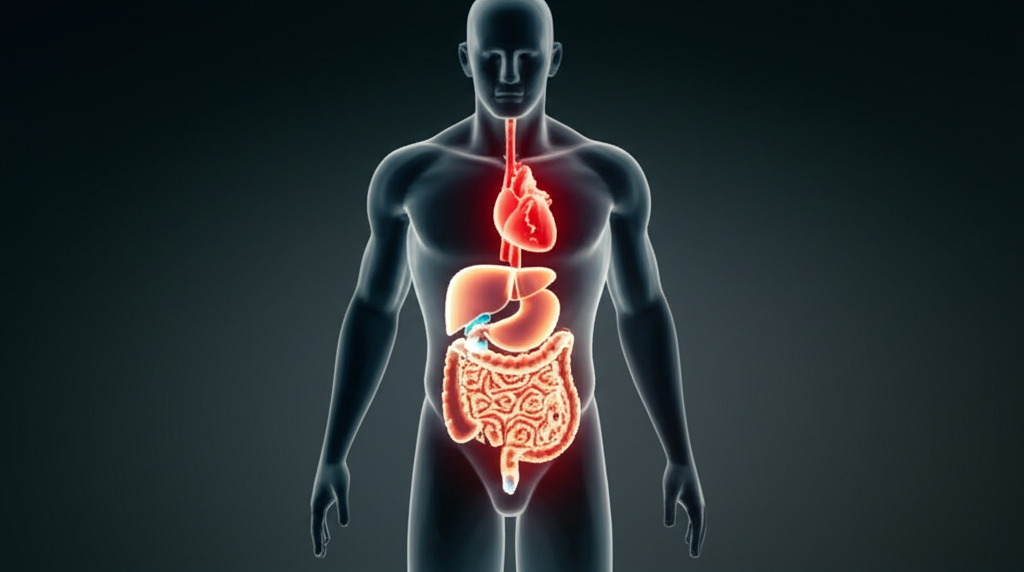
Table of Contents
Introduction
Stress is a ubiquitous part of modern life that affects millions of people every day, yet its impact on the body often goes underestimated or misunderstood. Have you ever found yourself overwhelmed by a pressing deadline, feeling your heart race or your stomach churn in response? These are not just fleeting feelings; they are the body’s natural reaction to stress, an intricate physiological and psychological response that can shape our health in profound ways. Understanding how stress affects the body is essential not only for managing daily challenges but also for safeguarding long-term well-being.
In today’s fast-paced world, stress can arise from many sources — work pressures, family responsibilities, financial worries, or unexpected life changes. While a certain amount of stress can be motivating, prolonged or excessive stress can trigger a cascade of harmful effects. Research shows that chronic stress contributes to a range of physical and mental health problems, making it one of the most significant health threats faced by individuals across all ages. The body’s response to stress involves complex systems including the nervous, endocrine, and immune systems, each playing a role in how stress manifests and affects overall health. Recognizing the signs and understanding the mechanisms is the first step towards effective management and prevention.
The short-term effects of stress might include increased heart rate, muscle tension, and heightened alertness — all intended as survival responses to immediate threats. However, when these stress responses remain activated over extended periods, they can lead to serious health consequences such as hypertension, weakened immunity, digestive disorders, and mental health challenges like anxiety or depression. This dual nature of stress — as both a necessary biological mechanism and a potential health hazard — makes it a complex topic worthy of thorough exploration. Everyone experiences stress differently, yet the underlying physiological changes often follow similar patterns, which science has painstakingly uncovered over decades.
On a personal level, stress is more than just physical symptoms; it takes a toll on emotional well-being and quality of life. Many people feel isolated or overwhelmed by their stress without fully understanding its impact or how to effectively cope. This emotional aspect can exacerbate physical symptoms, creating a challenging cycle that might affect relationships, work performance, and daily functioning. By gaining insight into how stress operates within the body and mind, readers can begin to shift their approach from reactive to proactive, developing strategies to improve both their mental and physical health.
In this guide, we will delve deeply into the multifaceted effects of stress on the body — from the cardiovascular and immune systems to the digestive tract and brain function. We’ll uncover how short-term and chronic stress differ, highlight common signs and symptoms, and provide evidence-based approaches for managing and preventing stress-related health issues. This comprehensive understanding serves as an empowering foundation for anyone seeking to reduce the harmful impact of stress, enhance resilience, and achieve a healthier balance in life.
What You’ll Learn in This Guide
This guide is designed to give you a thorough understanding of stress and its effects on the body, equipping you with the knowledge to recognize, manage, and reduce stress effectively. Here’s what you can expect to learn:
- Understanding the Basics: We will start by defining stress as both a physiological and psychological response, explaining the different types such as acute, chronic, and eustress, and how each uniquely influences body functions and health outcomes.
- Physiological Impact: You’ll gain detailed insight into how stress affects different body systems including the cardiovascular, immune, and digestive systems, and why prolonged stress can compromise your health and increase disease risk.
- Signs and Symptoms: Learn to identify the common mental, emotional, and physical symptoms of stress that often go unnoticed until they interfere significantly with daily life, helping you catch stress early before it escalates.
- Treatment and Prevention Strategies: Discover practical lifestyle changes, therapeutic approaches, and management techniques designed to reduce stress, enhance coping skills, and build long-term resilience against stress-related illnesses.
As this article unfolds, you will receive clear explanations, supported by scientific insights, and practical advice tailored to the challenges many face today. We will explore the physiology behind stress responses and investigate why some stress can be beneficial, motivating growth and adaptation, while chronic stress demands attention and care.
You’ll also learn about the subtle signs stress leaves on your body and mind, sometimes manifesting as headaches, fatigue, or irritability, and other times as more serious health conditions. Understanding these signs helps you take timely action, whether through lifestyle adjustments, professional help, or both.
By the end of this guide, you will be equipped with a toolkit of approaches for managing stress, from daily habits to professional treatments, empowering you to enhance your overall health and wellbeing. Whether you’re seeking to better understand your own experiences or wanting to support loved ones, this information will serve as a valuable resource for navigating the complexities of stress in our lives.
Let’s begin this important journey of awareness and action, recognizing that managing stress is a vital component to living a healthier, more balanced life. Understanding the effects of stress on the body is the foundation upon which you can build better health today and for the future.

Stress is an inherent part of human life, influencing both our mental state and physical health. While the introduction provided an overview of stress impacts, this discussion delves deeper into specifically how stress manifests in the body and what signs indicate that stress is affecting you. Understanding these effects not only clarifies why stress management is crucial, but also empowers you to recognize when proactive measures or professional help are necessary. By exploring the bodily systems most affected and common symptoms, readers will gain a comprehensive understanding to support their wellbeing effectively.
How Stress Affects the Body’s Major Systems
Stress triggers a complex cascade of physiological responses designed to help us respond to perceived threats, often called the “fight or flight” response. While beneficial in short bursts, prolonged exposure to stress hormones such as cortisol and adrenaline can cause significant disruption across various body systems. This section focuses on the cardiovascular, immune, and digestive systems — key players that illustrate the broad, systemic impact of stress. To fully grasp these effects, it helps to understand the interplay between stress and biological functions happening beneath the surface.
When stress hormones surge, they increase heart rate and constrict blood vessels, leading to elevated blood pressure. Over time, these effects can wear down the cardiovascular system, increasing risks of hypertension, heart attacks, and stroke. Simultaneously, stress suppresses immune function by impairing white blood cell activity, which leaves the body more susceptible to infections and slows healing processes. Stress also influences the digestive system by altering stomach acid production and intestinal movement, often resulting in acid reflux, indigestion, or appetite changes. Each of these impacts exemplifies how chronic stress can erode health over time.
Key Aspects of Stress Impact on Body Systems
Below are important factors to understand regarding stress-related physiological effects:
- Cardiovascular System: Stress elevates heart rate and blood pressure, straining the heart muscle and blood vessels. Chronic activation can contribute to plaque buildup in arteries, known as atherosclerosis, thereby increasing heart disease risk.
- Immune System: Prolonged stress inhibits key immune responses by reducing the production and effectiveness of lymphocytes, weakening the body’s defense against pathogens. This can result in frequent colds, slower recovery from illness, and increased vulnerability to chronic conditions.
- Digestive System: Stress interferes with normal digestion by increasing acid secretion, which can aggravate or cause stomach ulcers and acid reflux. It also affects gut motility, which may lead to symptoms like diarrhea or constipation, and can alter eating habits, impacting nutrition and overall digestive health.
- Neuroendocrine Effects: Besides direct impacts, stress causes imbalances in hormone regulation including cortisol, insulin, and reproductive hormones. These disruptions can affect metabolism, energy levels, and mood regulation, highlighting stress’s systemic reach.
Recognizing Signs and Symptoms of Stress
Identifying stress early is vital to prevent it from escalating into more serious health issues. Stress manifests through a combination of mental, emotional, and physical symptoms, often interrelated and varying in intensity person-to-person. Recognizing these indicators can prompt timely interventions, lifestyle adjustments, or medical consultations as needed. This section will explore common symptoms to look out for, helping readers self-assess and seek appropriate support.
Many individuals experience heightened anxiety, irritability, and difficulty concentrating when stressed. These mental symptoms can impair daily functioning and decision-making quality. Physically, prolonged stress often causes tension headaches, muscle tightness, persistent fatigue, and disrupted sleep patterns. These manifestations reflect the body’s ongoing battle to maintain equilibrium under constant pressure. Understanding these signs aids in confirming stress as a cause rather than attributing them solely to unrelated medical conditions.
Important Considerations for Stress Symptoms
Here are the major signs of stress and why they matter:
- Mental and Emotional Symptoms: Symptoms such as anxiety, mood swings, and irritability often precede physical signs. Difficulty focusing or feeling overwhelmed can signal that stress levels are surpassing coping capacity.
- Physical Symptoms: Tension headaches, muscle stiffness, and chronic fatigue are common physical responses. Sleep disturbances such as insomnia or restless nights further exacerbate stress effects and reduce overall resilience.
- Behavioral Changes: Stress can alter habits including appetite changes, social withdrawal, or increased use of substances like caffeine, alcohol, or tobacco. These behaviors might temporarily relieve stress but often worsen health in the long term.
- Cognitive Impact: Memory lapses and slowed thinking can occur under stress, affecting productivity and personal relationships. This cognitive slowdown indicates the brain’s resource allocation shifting due to constant alertness.

Conclusion
Understanding the profound effects of stress on the body is a critical step towards maintaining overall health and well-being. Stress, whether acute, chronic, or even positive in the form of eustress, triggers a complex cascade of physiological responses that impact multiple body systems. From elevating heart rate and blood pressure, which strain the cardiovascular system, to suppressing the immune system’s ability to fight infections, the reach of stress is extensive. Additionally, stress disrupts digestive functions, leading to symptoms such as acid reflux and changes in appetite, while also unsettling hormonal balance that affects metabolism and mood. Recognizing these interconnected effects underscores why stress management is essential not only for immediate comfort but also for preventing long-term health complications.
The signs and symptoms of stress present in many ways—mental, emotional, and physical. Anxiety, irritability, concentration difficulties, headaches, muscle tension, and fatigue are common indicators that stress has begun to weigh heavily on one’s body and mind. Awareness of these signs is paramount because early recognition allows for timely intervention, stopping stress from escalating into more serious conditions such as chronic illness or mental health disorders. A holistic understanding of what stress looks like in your body empowers you to take meaningful action before health deteriorates.
When it comes to managing stress, actionable strategies are both attainable and effective. Lifestyle changes such as regular physical activity, a balanced diet, and consistent, restorative sleep form the foundation of stress reduction. Incorporating mindfulness practices and relaxation techniques can further ease the mental burden by promoting calm and enhancing mental clarity. For some, professional therapies including cognitive-behavioral therapy can offer tools to reshape stress responses and build resilience. In cases where stress leads to anxiety or depression symptoms, medications prescribed by healthcare professionals may be necessary to support recovery. Prevention plays a vital role as well, with time management, boundary setting, and nurturing social connections serving as powerful buffers against undue stress.
Ultimately, the journey to managing stress successfully is one of ongoing commitment and self-compassion. By consciously adopting healthy habits and seeking support when needed, you strengthen your ability to face life’s challenges with greater balance and confidence. Remember that stress is a natural part of life, but it doesn’t have to control your health or happiness. Empower yourself with knowledge, take proactive steps, and cultivate resilience to protect your mind and body. With this comprehensive approach, you can transform stress from a potential threat into a manageable element of your well-being.


